Understanding Business Valuation in Canada
Business Valuation In Canada
So, you’re thinking about selling your Canadian business. You’ve considered the timing (as we discussed in the previous article), but now comes another crucial question: what’s it actually worth? Understanding business valuation in Canada is essential for a successful sale. It sets the stage for negotiations and ensures you get a fair price for your hard work.
Key Takeaways: Understanding Business Valuation
- Business valuation is crucial for setting a realistic asking price and facilitating negotiations.
- Several valuation methods exist, and the most appropriate method depends on the specific business.
- Many factors can influence a business's valuation, including financial performance, market conditions, and intangible assets.
- Working with a professional appraiser is highly recommended for a formal valuation.

Many business owners have a rough idea of their business's value, often based on gut feeling or past performance. However, a professional business valuation provides an objective and data-driven assessment, crucial for attracting serious buyers and securing financing.
Why Business Valuation Matters When You Say: Sell My Business In Canada
A professional business valuation isn't just a number; it's a powerful tool that can:
- Set a Realistic Asking Price: A well-supported valuation helps you establish a fair and competitive asking price, attracting serious buyers and avoiding lengthy negotiations.
- Support Financing Applications: Buyers often need financing to acquire a business. A professional valuation provides lenders with the necessary confidence to approve loans.
- Facilitate Negotiations: A clear and objective valuation provides a solid foundation for negotiations with potential buyers, preventing disagreements based on subjective opinions.
- Inform Your Exit Strategy: Understanding your business's value helps you make informed decisions about the timing and structure of your exit.
Common Business Valuation Methods in Canada
Several methods are used to determine the value of a business in Canada. Here are some of the most common:
Asset-Based Valuation Canada
This method focuses on the net asset value of the business—the total value of its assets (equipment, inventory, real estate) minus its liabilities (debts, loans). This method is often used for asset-heavy businesses, such as manufacturing or real estate companies.
Example: A metal fabrication business with $500,000 in equipment, $100,000 in inventory, and $50,000 in liabilities would have an asset-based valuation of $550,000. This method is more relevant if the business's value is tied primarily to its tangible assets.
Income-Based Valuation Canada
This method focuses on the business's future earning potential. Several approaches fall under this category:
- Discounted Cash Flow (DCF): This method projects future cash flows and discounts them back to their present value. It's often used for businesses with stable and predictable cash flows.
- Capitalization of Earnings: This method divides the business's net income by a capitalization rate (a rate of return reflecting the risk of investing in the business). It's suitable for businesses with consistent profitability.
Example: A profitable retail store with a net income of $100,000 and a capitalization rate of 20% would have a valuation of $500,000 ($100,000 / 0.20).
Market-Based Valuation Canada
This method compares the business to similar businesses that have recently been sold in the same industry and geographic area. This method is particularly useful when comparable data is available.
Example: If similar-sized restaurants in the same city have recently sold for 3-4 times their annual revenue, a restaurant with $200,000 in annual revenue might be valued at $600,000-$800,000.
Factors Affecting Business Valuation Canada
Several factors can influence a business's valuation, regardless of the method used:
- Financial Performance: Revenue, profitability, cash flow, and debt levels are all key indicators of a business's financial health.
- Market Share and Competitive Landscape: A strong market share and a competitive advantage can significantly increase a business's value.
- Management Team and Employees: A skilled and experienced management team and a loyal workforce are valuable assets.
- Customer Base and Supplier Relationships: Strong customer relationships and reliable supplier networks contribute to business stability and value.
- Intangible Assets: Brand recognition, intellectual property, and customer loyalty are valuable intangible assets that can impact valuation.
Using EBITDA Multiples for Valuation
One common market-based valuation method, particularly relevant for manufacturing and industrial services, is using EBITDA (Earnings Before Interest, Taxes, Depreciation, and Amortization) multiples. This method is preferred because it provides a clearer picture of a company's core profitability, removing the effects of financing and accounting decisions.
The formula is simple:
Business Value = EBITDA x EBITDA Multiple
The challenge lies in determining the appropriate multiple. This varies significantly based on factors like:
- Company Size and Revenue: Larger, more established companies typically command higher multiples.
- Profitability and Growth: Higher profitability and consistent growth lead to higher multiples.
- Industry and Market Conditions: Certain industries are more attractive to investors, resulting in higher multiples.
- Competitive Landscape: Less competition and unique offerings can justify higher multiples.
Here's a table showing average EBITDA multiples for the Manufacturing and Industrial Services industry in Canada (Note: these are averages and can vary significantly):
| Company Size (Annual Revenue) | Average EBITDA Multiple |
|---|---|
| Under $5 Million | 3-5x |
| $5 Million - $20 Million | 4-6x |
| Over $20 Million | 5-8x or higher |
Example: Let's say a metal fabrication business in Ontario has an EBITDA of $1 million. If comparable companies in the same region are selling at a 4-5x EBITDA multiple, the business could be valued between $4 million and $5 million.
Khaled Baranbo, M&A Advisor in Ontario, Canada, recalls a manufacturing business he worked with that had consistently underinvested in new equipment. While their EBITDA was decent, comparable businesses with modern machinery were fetching higher multiples, ultimately impacting the final sale price. This emphasizes the importance of not just profitability, but also the quality and modernity of assets.
Fun Facts:
- EBITDA multiples for small to mid-sized manufacturing companies have experienced a slight increase in 2024 but have mostly returned to the pre-2020 average of 6-8x, with even higher valuations for companies utilizing advanced technologies like 3D printing.
- Overall, EBITDA multiples in the oil and gas sector have not returned to pre-pandemic levels, with diversified oilfield services and equipment companies performing better than those in oilfield equipment manufacturing, oilfield services, and contract drilling.
- Logistics and transportation firms experienced an increase in their multiples, which subsequently plateaued in 2021-2022 based on their performance amid supply chain shortages, before rebounding in 2024; the strongest sector has been LTL, while the weakest has been asset-based truckload.
- Staffing and recruiting firms enjoy higher multiples compared to other service providers due to the stability of their revenue, with those servicing enterprises achieving the highest ranges (approximately 6x).
- Private equity demand for MSPs is robust, driven by the appeal of the recurring revenue model. However, the industry's fragmented nature and limited scale result in significant variability in EBITDA multiples.
- Valuations in industrial automation and IoT are on the rise, propelled by the urgent need for digital transformation and the growing interest of major acquirers in acquiring businesses valued under $100M.
- HVAC multiples remained steady throughout Q1 2022, with the exception of companies in expanding regions that possess recurring maintenance contracts. However, they experienced a notable surge in late 2022 and continue to represent one of the most significant increases in multiples for the industry up to Q3 2024.
- Valuations have seen a gradual yet consistent increase since Q2 ’23, although they are challenged by rising costs and perceptions of inaccessibility. Firms that offer free quotes and inspections often achieve higher multiples.
- Engineering companies typically experience non-recurring cash flow, resulting in lower EBITDA multiples; however, firms with long-term government contracts are an exception (assuming customer concentration remains below 40%).
- E-commerce valuations continue to be robust following the pandemic, with primary constraints stemming from supply chain issues and "Amazon Fear"; niche specialists are achieving the highest multiples.
- Driven by the transition to remote work, M&A activity in cybersecurity reached its zenith between Q4 2021 and Q2 2022, primarily fueled by PE and VC firms, alongside a limited number of strategic acquisitions. While multiples are slightly reduced as of Q3 2024, they continue to show strength despite a deceleration in deal flow.
- EBITDA multiples in construction tend to be low because of non-recurring revenue and elevated costs; however, as automation (such as modular and prefab) and software become more prominent, these multiples increase.
- Multiples have risen year-over-year for the past three years because of global conflicts (e.g., Russia-Ukraine, Israel-Lebanon).
Source:
EBITDA Multiples by Industry & Company Size: 2024 Report
Working With a Business Appraiser in Canada
While you can get a rough estimate of your business's value using online tools or basic calculations, a professional business appraiser provides an objective and defensible valuation report. This report is essential for attracting serious buyers and securing financing. A qualified appraiser will consider all relevant factors and use appropriate valuation methods to arrive at a fair and accurate value.
Final Take: Unlock Business Valuation
- Business valuation is crucial for setting a realistic asking price and facilitating negotiations.
- Several valuation methods exist, and the most appropriate method depends on the specific business.
- Many factors can influence a business's valuation, including financial performance, market conditions, and intangible assets.
- Working with a professional appraiser is highly recommended for a formal valuation.
Next Step:
Now that you understand how business valuation works, it's time to focus on maximizing your business's value. Click here to learn how to
boost your business’s financial performance before selling.
Have Questions? We've Got Answers
Get in this queue for a whale’s tail. They are a beauty, eh
We just wanted to say hi and thanks for stopping by our little corner of the web. :) “Go ahead and eat your elephant ears on the chesterfield. I’ll come sit with you as soon as I take these runners off.” But, alas, this is the Internet.
However, we think you'll love our email newsletter about building value and properly position your manufacturing company before transition/exit your business.
As a special welcome gift for subscribing, you'll also get our helping and educational guides, tips, tutorials, etc.. for free.
It's filled with the best practices for retiring serial business owners like Joseph-Armand Bombardier, John Molson, Warren Buffett and many more.
Just sign up for our emails below.



